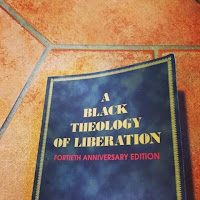Grace and peace from God our Creator, hope in our Redeemer Jesus the Christ, and the promised gifts of the Holy Spirit are with you, always.
Our Gospel reading this morning contains words from Jesus that are perhaps some of the most famous he ever said. Perhaps even too famous. These, from the Gospel According to Matthew, are from the Sermon on the Mount, which we’ll trek through for the next couple of weeks. There are similar verses in the Gospel According to Luke, though with some significant differences. You’ll have to stick around until we do the year of Luke, though, to find out what those are.
This series of statements on blessedness are called The Beatitudes, which is just a Latin-y way of saying The Blessednesses. If you are a longtime church-goer, you have probably heard these verses many times over the years, perhaps enough times that you could scribble several of them down mostly from memory, or at least select them from a multiple choice list.
But when was the last time you really sat with them, pondered them, wondered about what Jesus meant by them, and what they mean to us today? My friend and colleague Pastor Tuhina Verma Rasche was on a podcast episode this week talking about this, and how infuriated we should be when we hear these Beatitudes proclaimed. Not that they’re somehow incorrect or irrelevant, but rather because of how still un-realized they are in our modern world.
Jesus did not recite this list of blessings because it was what he saw in the world around him. These declarations are subversions of reality, telling the truth about God’s economy.
As we look around, it is easy to notice that the poor in spirit–or, in our modern parlance, perhaps, the depressed–are not receiving the riches of this world. Those who mourn are not being comforted, as there is hardly time to process one atrocity before learning of another. The meek, the quiet, the put-upon, are not inheriting much. Those who hunger and thirst for righteousness and justice are being told to wait. Those who are pure in heart, those who strive for peace, are called naive for their boldness to imagine a world without war and violence. Those who are persecuted, reviled, and who have “all kinds of evil” uttered against them are certainly not lining up to rejoice and be glad.
This is the difference, once again, between the kingdoms of earth and the reign of God. Real blessedness does not come from power and privilege, but is “the state of being when you know that divine dignity is given to you despite what everything else looks like.” Blessedness is “the embodiment of goodness in the world despite the evil that surrounds.” [1]
And the Beatitudes are not a “how to” manual for receiving blessing from God. [2] Rather, they are a responsive reality to the lavish blessings that God freely gives. We do not earn blessedness, just as we do not earn belovedness. God blesses liberally, abundantly, wildly, and–like Bishop Dave preached on Sunday afternoon–even recklessly and wastefully.
Upon hearing the beatitudes, our next move should not be to figure out how to wedge ourselves into one of these categories in order to qualify for blessing. None of them are especially enticing to me, frankly. We will, of course, find ourselves in one or more of these places throughout our lives, and can know that through that hardship we are still receiving grace upon grace from God. Though the world around us looks at us askance—or attempts to ignore us altogether—we can know that, ultimately, God sees and knows us.
Perhaps this is not making sense, feeling just too contradictory. You may have noticed that in each of our readings this morning, there is controversy and question and foolishness. In our contemporary understanding, foolishness is merely silliness, or stupidity, or a lack of clear judgment.
You may recall foolish characters throughout film and literature, court jesters and clowns, and think of them as simply humorous and goofy. But the archetype of the fool, the presence of those characters in those stories is actually to tell the truth. To show the powerful where they have been wrong and even stupid. It is an intentional reversal, a turning inside out and upside down, to show what is truly real.
We are months removed from his feast day, but I imagine many of you are familiar with St. Francis of Assisi, and won’t mind hearing about him on this fourth Sunday after the Epiphany.
Francis has been watered down a bit over the centuries, presiding serenely over our bird baths, but was known in his lifetime as “God’s fool.” Francis grew up in a wealthy, aristocratic family and turned his entire life upside down to follow the call of God. He stripped himself, quite literally, of all of his earthly possessions, and gathered like-minded revolutionaries to change the church and the world.
The order of St. Francis, the Franciscans, are called to live among the social outcasts, rejecting the expectations of mainstream society. They are called to lives of simplicity, though they live in a world of riches and abundance.
St. Francis modeled for us the way to live a life of purpose, free from the lures of wealth and power. This is straightforward but it is not easy. Our lives are comfortable, and we are not inclined to throw ourselves into lives of utter discomfort and disarray at the drop of a hat. There is a reason that this is called foolishness.
But “the sacred function of the Fool is to tear down the illusions we hold so dear and illuminate what is new through playfulness and humor, using shocking or unconventional behavior to challenge the status quo or social norms.” [3]
What would it mean, in our own lives, to live foolishly, as Francis did, and as Jesus did, and as Paul did?
In the first letter to the Corinthians, it is written that “God chose what is foolish in the world to shame the wise; God chose what is weak in the world to shame the strong; God chose what is low and despised in the world, things that are not, to reduce to nothing things that are” (1 Cor 1:27-28).
The reign of God has come near, Jesus tells us. If the truly blessed are those that the world sees as disposable, pitiable, unclean, outcast, and even as enemies, how will we change that?
How will we partner with God to turn this world upside down, to set it right as God sees it?
This week, and nearly every week for the last several years, our news cycle has included stories of police violence. This week, you may have heard the name Tyre Nichols in the news. Video footage of Memphis police officers beating him nearly to death during a traffic stop was released to the public on Friday. He died of those injuries in the hospital a few days later.
Tyre Nichols was the father of a 4-year-old, was an avid skateboarder, nature photographer, and beloved child of God. The details of his death, if you are interested in them, are widely available from reliable sources online, and we won’t be litigating them here this morning.
In response to his murder, and to the thousands of murders of Black Americans at the hands of police and other vigilantes, we cry out Black Lives Matter. Since there are thousands of these horrifying and senseless deaths, it is clear that, to those who kill them, Black lives do not matter.
Just as in the beatitudes, the proclamation of blessedness on our marginalized and minoritized siblings in Christ is counter to the dominant narrative. It may seem “foolish” to those who do not understand. All the more reason to boldly proclaim it.
As we work to change the world, our initial inclinations may be to look to authority figures who hold power and prestige and wealth, because those are the signs of “blessedness” we are accustomed to recognizing. But God has told us, O mortals, what is good. What does the Lord require of us? But to do justice, and to love kindness, and to walk humbly. (Micah 6:8)
To whom then, shall we look? To God’s own fools. To those who do justice, and love kindness, and walk humbly. To Jesus, to Francis; to those who hunger and thirst for righteousness; to those who are persecuted and reviled for their dedication to the gospel; to the pure in heart; to the merciful; to the meek and the gentle; to the peacemakers; to the blessed.
Amen.
[3] Christine Valters Paintner, Illuminating the Way: Embracing the Wisdom of Monks and Mystics, Sorin Books, 2016.



